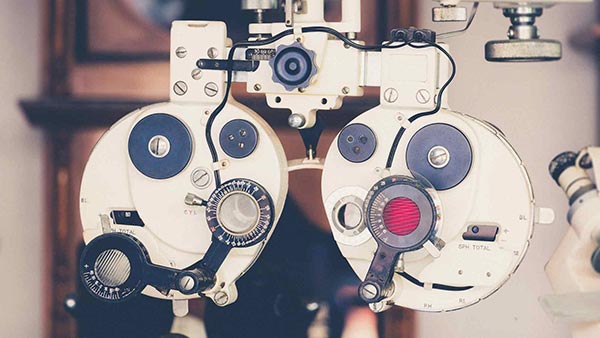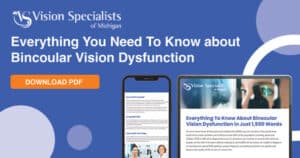- “I've just had an eye exam, but I still can't read.”
- “I’ve had eye exams, and they’ve told me everything’s OK.”
- “There’s nothing wrong with my eyes.”

Recognizing Vertical Heterophoria
Have you ever wondered why, despite having two eyes, you only see one image? Each time you look at something, each eye takes in an image which is then processed by the brain and merged together into one clear picture. This intricate process is dependent on the eyes being perfectly aligned. Any amount of misalignment, no matter how slight, will result in blurred or doubled images being seen by the brain. The brain in turn tries to fix the misalignment by using the extraocular muscles to realign the eyes. The correction lasts only a second, and then the misalignment returns, which is again followed by an alignment correction. As this misalignment/realignment cycle continues, the eye muscles become more and more overworked, and, as a result of the stress and strain put on them, a range of unpleasant symptoms begin to appear. When the misalignment is vertical, this condition is known as vertical heterophoria (VH).Symptoms of Vertical Heterophoria
VH can manifest itself in a variety of uncomfortable, painful and even scary symptoms. Some of the most common are:- Headaches and migraines
- Anxiety in large, crowded places
- Difficulty concentrating
- Dizziness and nausea
- Vertigo and/or difficulty with walking and balance
- Sensitivity to light
- Feeling disoriented in a moving vehicle
- Eye pain
Schedule a Binocular Vision Test
At Vision Specialists of Michigan, our state-of-the-art technology and treatment methods allow our specialists to detect and treat even the smallest of eye misalignments. For more information on our methods and to schedule a NeuroVisual evaluation to determine if you may be suffering from VH, please give us a call today at [company_phone].Filed Under:
Tagged With: Binocular Vision Dysfunction, Dizziness,








